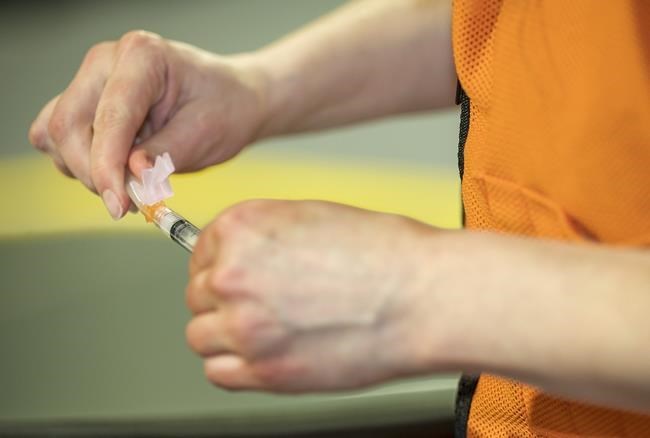WHITEHORSE — Yukon is moving to remove COVID-19 vaccine requirements for workers in high-risk settings as it prepares to transition out of an acute response phase of the pandemic.Â
Health Minister Tracy-Anne McPhee says the government recently received the recommendation from the interim chief medical health officer and it has been endorsed by the territory's new top doctor, Dr. Sudit Ranade.
McPhee says the next step requires her to take it to cabinet, which could happen this week, and if the mandate is removed it becomes an immediate action.Â
COVID-19 vaccinations are required for staff, contractors and volunteers in high-risk settings, including long-term care homes, hospitals and correctional centres.Â
Ranade, who recently moved to Yukon from Ontario to serve as chief medical health officer, says transitioning out of an acute response will mean treating COVID-19 in line with other respiratory illnesses.
As part of the shift, he says health system functions like who is tested and why, will be reviewed.
"It's going to take some time to figure out exactly what that means for everyday life," he says.
"There are parts that we were treating as a separate entity, a separate response — there's COVID and then everything else. We have to start bringing that COVID response, and how we react to it, into the more routine ways of doing things."
The territory is also adjusting its public record-keeping and will replace daily case counts with weekly or monthly measures, depending on the metric, he says.
This report by The Canadian Press was first published July 13, 2022.Â
The Canadian Press




